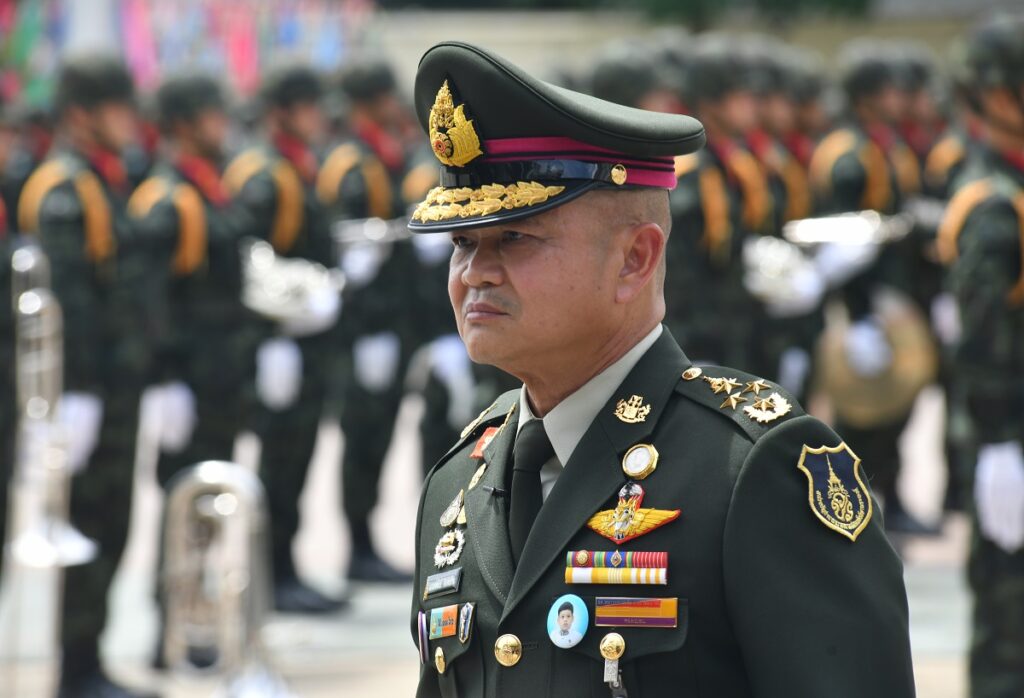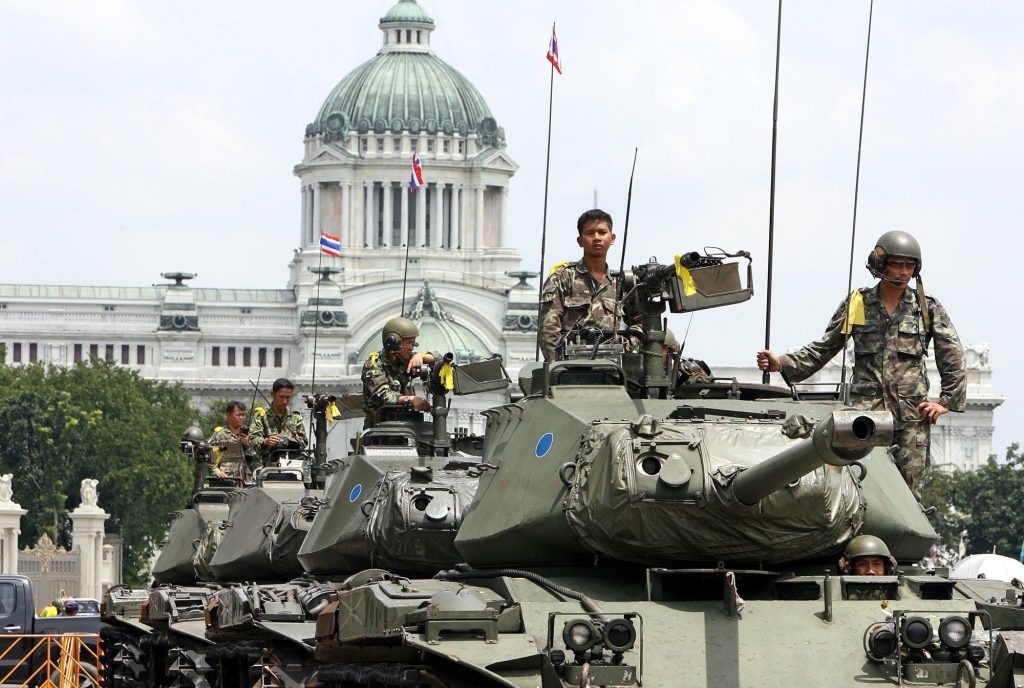News
Thailand’s Top General Cannot Guarantee No Military Introversion

Thailand’s Army Chief Gen Narongpan Jitkaewthae told reporters that if the country faces political turmoil in the next five months while the army is under his command, he cannot guarantee that the military will not intervene again.
“I can’t promise anything. This implies that we must assess whether the country is orderly or not. All parties must work together…”
When asked directly whether there will be a military coup, the army chief stated that he has often urged reporters that they should stop asking about coups “because it will continuously ferment conflicting ideas.”
The Army head advised reporters to stop using the phrase “military coup.” Reporters then inquired whether the army had erased the words.
Under his direction, the phrases “military coup” have been “removed [from the army’s dictionary].” The remark came amid mounting speculation about a coup if the Move Forward Party forms the next government and attempts to modify the lese majeste law and abolish obligatory military conscription.
Narongpan stated that whoever is in power has the authority to implement their policies, including the abolition of forced military conscription. “There are issues that soldiers must discuss.” There are those who agree and those who disagree. That is normal…”
When asked if he is concerned that political turmoil will force the military to interfere again, the army commander answered, “I’m not afraid because we’ve learned a lot in the past… Politics in a democratic society must continue, but everyone must be vigilant and understand what is suitable and wrong for our country. That is to say, the country requires peace and order.”
Recent Military Coups in Thailand
Thailand has a history of military coups, the most recent of which took place in 2014. Thailand has had 13 successful military coups and 9 failed coups since it became a constitutional monarchy in 1932.
General Prayut Chan-o-cha, the Royal Thai Army’s commander-in-chief at the time, launched the coup in 2014. Following months of political upheaval and protests, the military claimed that the coup was required to restore order and stability.
The military dismissed the government, suspended the constitution, and installed a military-led administration following the coup. The junta, known as the National Council for Peace and Order (NCPO), controlled Thailand for five years, restricting civil freedoms, prohibiting political parties, and suppressing dissent.
The military regime was deposed in 2019, but concerns about the military’s influence in politics linger, with some academics arguing that the military remains a major force in Thai politics and that future coups cannot be ruled out.
2006 Coup Against Thaksin Shinawatra
Thaksin Shinawatra was Thailand’s former Prime Minister who was deposed in a military coup in 2006. Thaksin, a millionaire businessman, was elected Prime Minister for the first time in 2001 and re-elected in a landslide victory in 2005.
Many Thais, particularly in rural regions, supported Thaksin’s initiatives aimed at decreasing poverty and boosting access to healthcare. He was also chastised for alleged corruption and autocratic inclinations.
While Thaksin was attending the United Nations General Assembly in New York in September 2006, his administration was deposed by a military coup led by General Sonthi Boonyaratglin. The military used Thaksin’s alleged corruption and misuse of power to justify the coup.
Thaksin fled into exile after the coup, and his Thai assets were frozen. He was convicted in absentia of corruption and sentenced to two years in prison. Despite his exile and legal problems, Thaksin remains a polarising figure in Thai politics, with fans hailing him as a defender of the poor and detractors branding him a corrupt autocrat.
2014 Coup Against Yingluck Shinawatra
Yingluck Shinawatra, the sister of former Prime Minister Thaksin Shinawatra, was deposed in 2014 through a contentious court judgement rather than a military coup.
In 2011, Yingluck became Thailand’s first female Prime Minister, leading the Pheu Thai Party to a landslide win. She was popular among many Thais, particularly in rural areas, for her populist ideas aimed at alleviating poverty and encouraging economic growth, as was her brother Thaksin.
Yingluck, on the other hand, faced growing criticism and protests over her government’s handling of many issues, including a contentious amnesty bill and corruption allegations. She presented a law in 2013 that would have offered amnesty to people who had participated in political violence after the 2006 military takeover, which generated huge protests and resistance.
Yingluck was dismissed from office in May 2014 after the Thai Constitutional Court decided that she had misused her power by transferring a top government official. This ruling sparked charges that the court was biassed against Yingluck and her party.
Following the court’s decision, the military, commanded by General Prayut Chan-o-cha, staged a coup and created a military-dominated government. Yingluck was later prosecuted with corruption in connection with her government’s rice subsidy programme and fled Thailand before the judgement was read. She was later found guilty and sentenced to five years in jail in absentia.
































